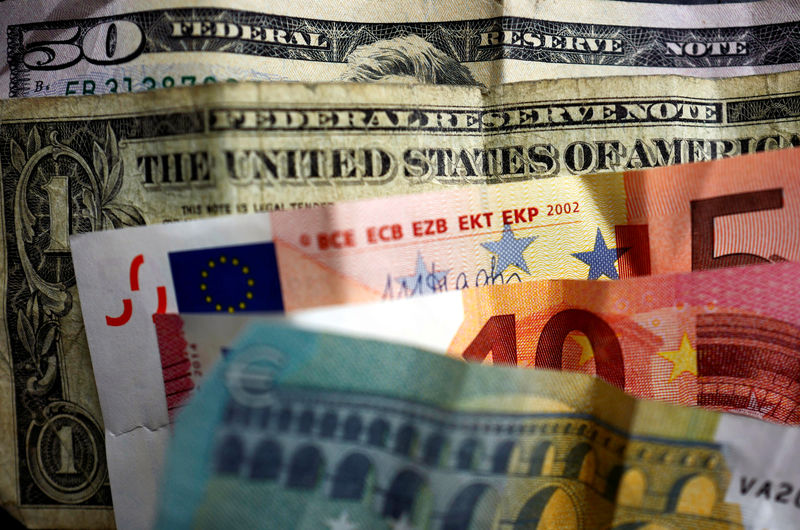Intel stock extends gains after report of possible U.S. government stake
Investing.com - The U.S. dollar stabilized in early European trade Monday, handing back some of the gains seen after the attempted assassination of former U.S. President Donald Trump over the weekend, ahead of comments from Fed Chair Jerome Powell.
At 05:45 ET (09:45 GMT), the Dollar Index, which tracks the greenback against a basket of six other currencies, traded largely unchanged at 103.785, after hitting a one-month low last week.
Dollar stabilizes ahead of Powell speech
The dollar, and the benchmark 10-year Treasury yield, initially gained after Trump’s right ear was hit, leaving his face blooded, after shots rang out at a campaign rally in Pennsylvania over the weekend.
Trump is now set to appear at the 2024 Republican convention later this week, and is likely to be nominated as the party’s frontrunner for the presidential race.
Analysts said that the shooting increased his chances of a victory over Joe Biden- a scenario that could eventually favor the dollar, given that Trump has signaled his intent to enact more protectionist trade policies.
However, these gains have dissipated ahead of comments from Federal Reserve Chair Jerome Powell, as he is set to be interviewed by David Rubenstein at the Economic Club of Washington DC.
U.S. inflation showed signs of easing last week, and Powell could advance expectations that the central bank will start a rate-cutting cycle in September.
“Fed speakers will have to comment on the latest CPI figures, and when compared to the June Dot Plot, there are clear risks of dovish readjustments in many FOMC members’ communication,” said analysts at ING, in a note.
Euro gains ahead of ECB meeting
EUR/USD rose 0.1% to 1.0910, with the euro trading at its highest level since March, ahead of the latest policy-setting European Central Bank meeting later this week.
The ECB is widely expected to maintain its current rates after they eased in June.
“The softer dollar story has boosted EUR/USD in July – but we still think the volatile situation in French politics is a risk that cannot be ignored, and point at least to the euro lagging most other pro-cyclical currencies in any new USD selloffs,” said ING.
Credit rating agencies Moody's (NYSE:MCO) and S&P Global have warned of negative impacts on the French economy from the political deadlock, where no political party won an outright majority at the recent parliamentary elections.
GBP/USD traded marginally lower to 1.2988, trading around the highest levels seen in over 2 years, in the wake of the landslide election victory for Britain's center-left Labour government, with investors starting to look at U.K. markets as a potential haven as political uncertainty rises in the U.S. and elsewhere in Europe.
Yuan slipped after weak Chinese GDP data
In Asia, USD/JPY traded 0.1% higher to 157.96, with the yen slipping slightly after it had firmed sharply against the dollar late last week, sparking speculation over whether the move was caused by government intervention or by a short squeeze on bets against the yen.
USD/CNY traded 0.2% higher to 7.2627, with the Chinese currency weakening close to eight-month lows after China’s economy grew less than expected at 4.7% in the second quarter, amid increasing headwinds from weak consumer spending.
